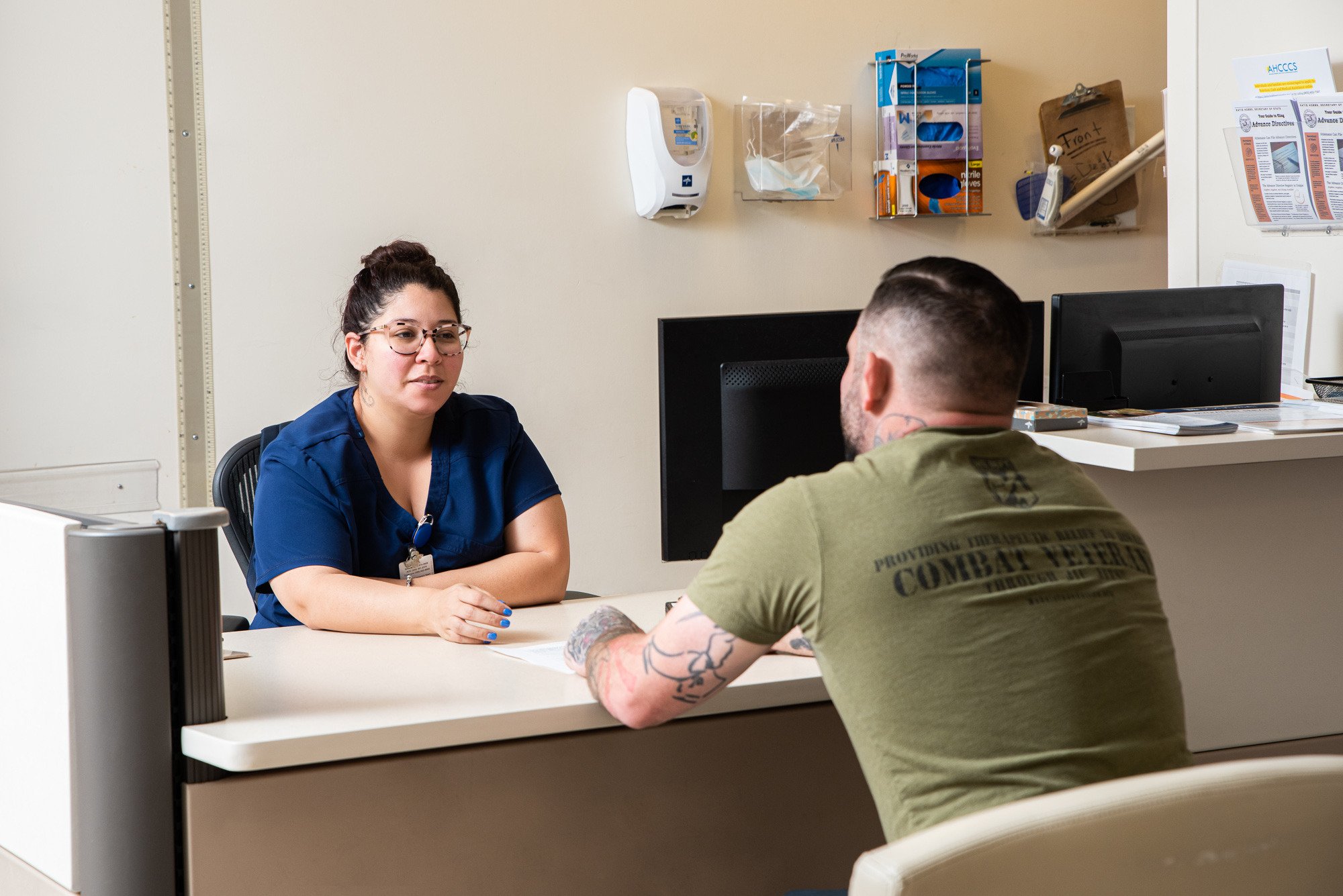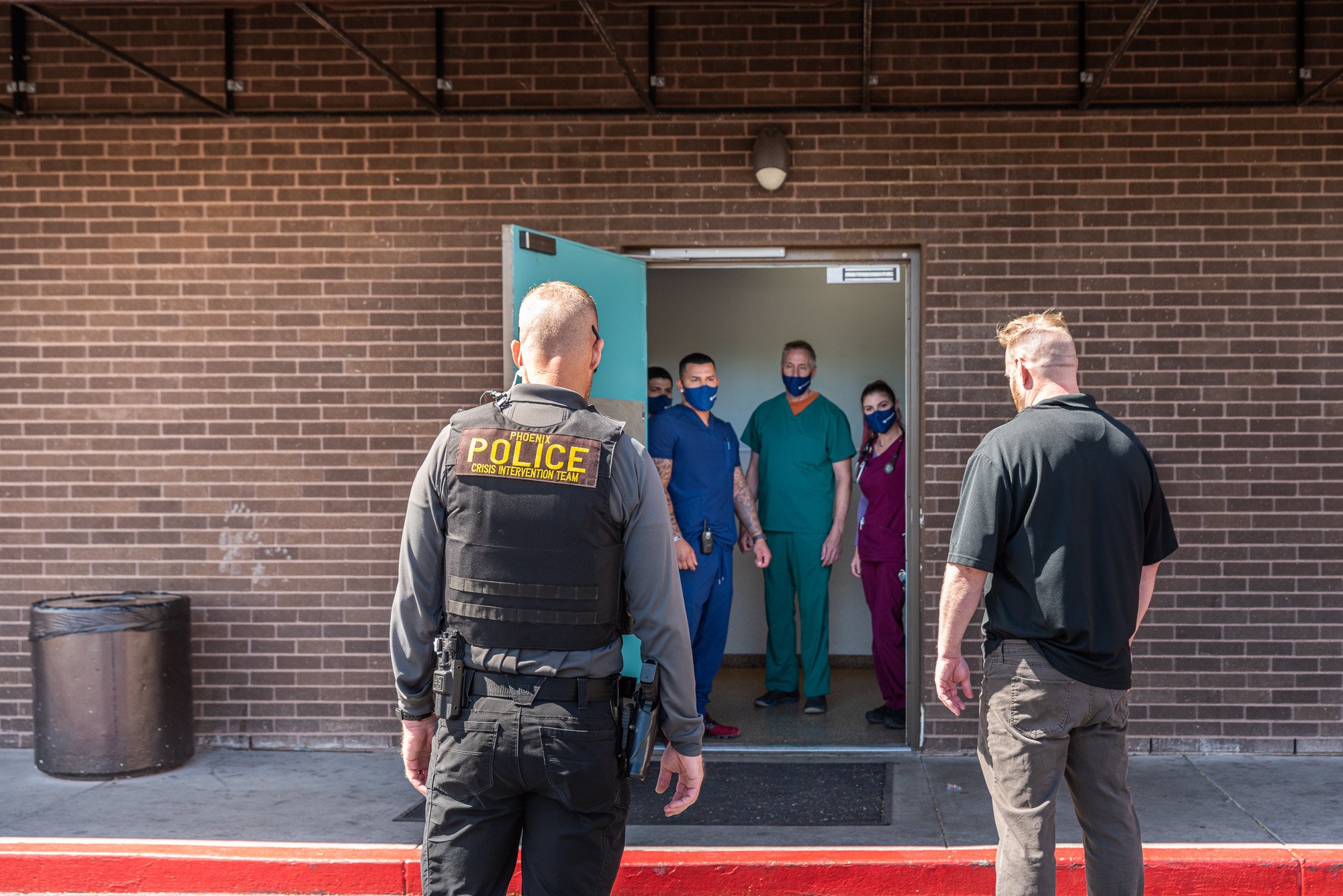Community Leaders
Resource Library
Featured Resources
-
%20(11).png)
Naloxone reverses opioid overdoses, but the care someone receives after that moment matters just as much. In King County, Connections Health Solutions and Emergency Medical Services (EMS) partnered to create a new approach, one that focuses on safety, dignity, and connection rather than automatically sending people to emergency departments.
Connections Health Solutions Jan 23, 2026 -
%20(11).png)
Naloxone reverses opioid overdoses, but the care someone receives after that moment matters just as much. In King County, Connections Health Solutions and Emergency Medical Services (EMS) partnered to create a new approach, one that focuses on safety, dignity, and connection rather than automatically sending people to emergency departments.
Connections Health Solutions Jan 23, 2026 -
%20(9).png)
No organization can deliver effective crisis care alone. At Connections, we've learned that the operational reality of crisis stabilization depends entirely on strong, multi-sector partnerships. Before we open doors in a new market, we spend months—sometimes years—building the relationships that will become the foundation of care.
Connections Health Solutions Jan 15, 2026 -
%20(8).png)
Behavioral health has long been caught between two imperatives: delivering exceptional care and ensuring financial viability. At Connections Health Solutions, we're proving there's a third option: a model that's financially viable because it delivers on its mission.
Connections Health Solutions Jan 9, 2026
- All
- Crisis Response Center
- 23-Hour Observation
- True Cost of Behavioral Health
- Law Enforcement
- Policy
- Crisis Education
- Crisis Roadmap
- Mental Health
- Mobile Crisis Response
- Peer Support
- Youth Crisis
-
.jpg)
Across the U.S., county governments are at the forefront of transforming behavioral health crisis response. The launch of the 988 Suicide and Crisis Lifeline, along with the growing presence of mobile crisis teams, has intensified the focus on establishing Crisis Response Centers (CRCs). These centers are vital for alleviating the burden on first responders, hospitals, and detention centers – which currently serve as a default solution for those in crisis.
With 75 percent of the U.S. population reliant on county-based behavioral health services through more than 750 county-supported or operated behavioral health authorities, it is essential that counties looking to partner on the operations of a CRC create concise and effective requests for proposals (RFPs).
Connections Health Solutions Oct 24, 2024 -
%20(1).jpg)
A well-designed crisis care system has the potential to transform how individuals in need access timely and appropriate support. Central to this vision are crisis centers, which provide immediate interventions for those experiencing behavioral health emergencies.
Connections Health Solutions Oct 16, 2024 -

When a mental health crisis is averted, the journey to recovery is far from over. Comprehensive discharge planning is paramount to ensure individuals receive the ongoing support necessary for stabilization and to prevent future crises. A continuum of crisis programs, each tailored to varying levels of need, is essential for providing care in the least restrictive, most appropriate setting.
For those who no longer require intensive crisis intervention but still benefit from a supportive environment, lower acuity crisis programs offer a vital step-down level of care. These programs, often housed in home-like settings, provide a non-institutional atmosphere staffed primarily by peers and behavioral health clinicians. Services may include medically monitored detoxification or clinically managed sobering programs, depending on the facility's medical capabilities. Lengths of stay vary from under 24 hours in living rooms to several days or weeks in crisis residential programs. These programs play a crucial role in preventing or shortening inpatient admissions by offering a bridge to less intensive community-based services.
Urgent care clinics serve as a critical link to outpatient services, providing same-day access to assessment, crisis counseling, medication management, and care coordination. Staffed by psychiatrists, nurse practitioners, social services staff, and often peer support specialists, these clinics function as the front door to the crisis system. Individuals can receive immediate attention, with the option for admission to a higher acuity 23-hour observation unit if necessary. Without urgent care, individuals may face extended waits for outpatient appointments, allowing their condition to potentially escalate.
Comprehensive discharge planning from crisis programs must consider the individual's ongoing needs and the availability of services in their community. This includes connection to outpatient therapy, support groups, and case management services, as well as addressing basic needs like housing and financial stability. By coordinating with community providers and social services agencies, crisis programs can ensure a smooth transition and reduce the likelihood of future crises.
Investing in a continuum of crisis programs, from intensive intervention to lower acuity step-down services and urgent care, is essential for providing the right level of care at the right time. Comprehensive discharge planning is the thread that weaves these services together, setting the stage for sustained recovery.Connections Health Solutions Oct 8, 2024 -

One of the core goals of crisis services is to reduce unnecessary emergency department visits and jail bookings by providing readily accessible behavioral health care. A dedicated receiving function at crisis centers plays a pivotal role in this mission, offering a 24/7 entry point for individuals in need through walk-ins, emergency department transfers, and direct drop-offs by first responders.
Connections Health Solutions Sep 11, 2024 -

Arizona has evolved its crisis response system over the past 15 years, establishing a model that emphasizes coordination, accessibility, and fiscal responsibility. At the heart of this transformation is a managed Medicaid structure, a robust funding strategy, and a commitment to treating individuals in the community.
Connections Health Solutions Aug 7, 2024 -
%20(1).jpg)
In the realm of mental health much has been done over the past few years to advance the crisis response system. Leading the charge is the state of Arizona, who has charted a remarkable course, sculpting a system with four key components that form the backbone of an effective crisis response system. Let's delve into these pillars that collectively contribute to a comprehensive and impactful system.
Connections Health Solutions Jul 17, 2024 -
-2.jpg)
A "No Wrong Door" crisis response center (CRC) is an approach that revolutionizes how first responders and law enforcement partners can help individuals in crisis get treatment instead of the alternative of jail or languishing in the emergency department (ED) waiting for a bed. Centers who operate as a “no wrong door” facility have become pivotal in reshaping the narrative around mental health emergencies.
Connections Health Solutions Jul 10, 2024 -

With an increase in fentanyl across the globe, Connections Health Solutions’ chief of quality and innovation officer, Dr. Margie Balfour, spoke to what Connections is doing and how crisis response centers can help.
“Part of our mission is to get people into treatment instead of in the justice system,” Dr. Balfour stated.
Connections Health Solutions Jul 3, 2024
Sign Up For Our Newsletter
Discover the latest news about Connections and best practices in behavioral health care.
Stay up-to-date with critical insights for our communities, managed care organizations, providers, and more.
